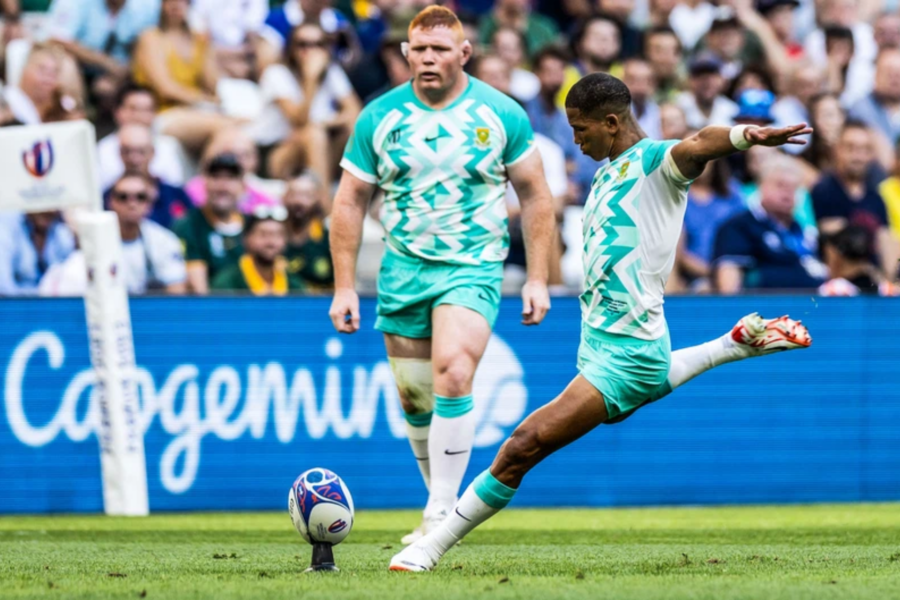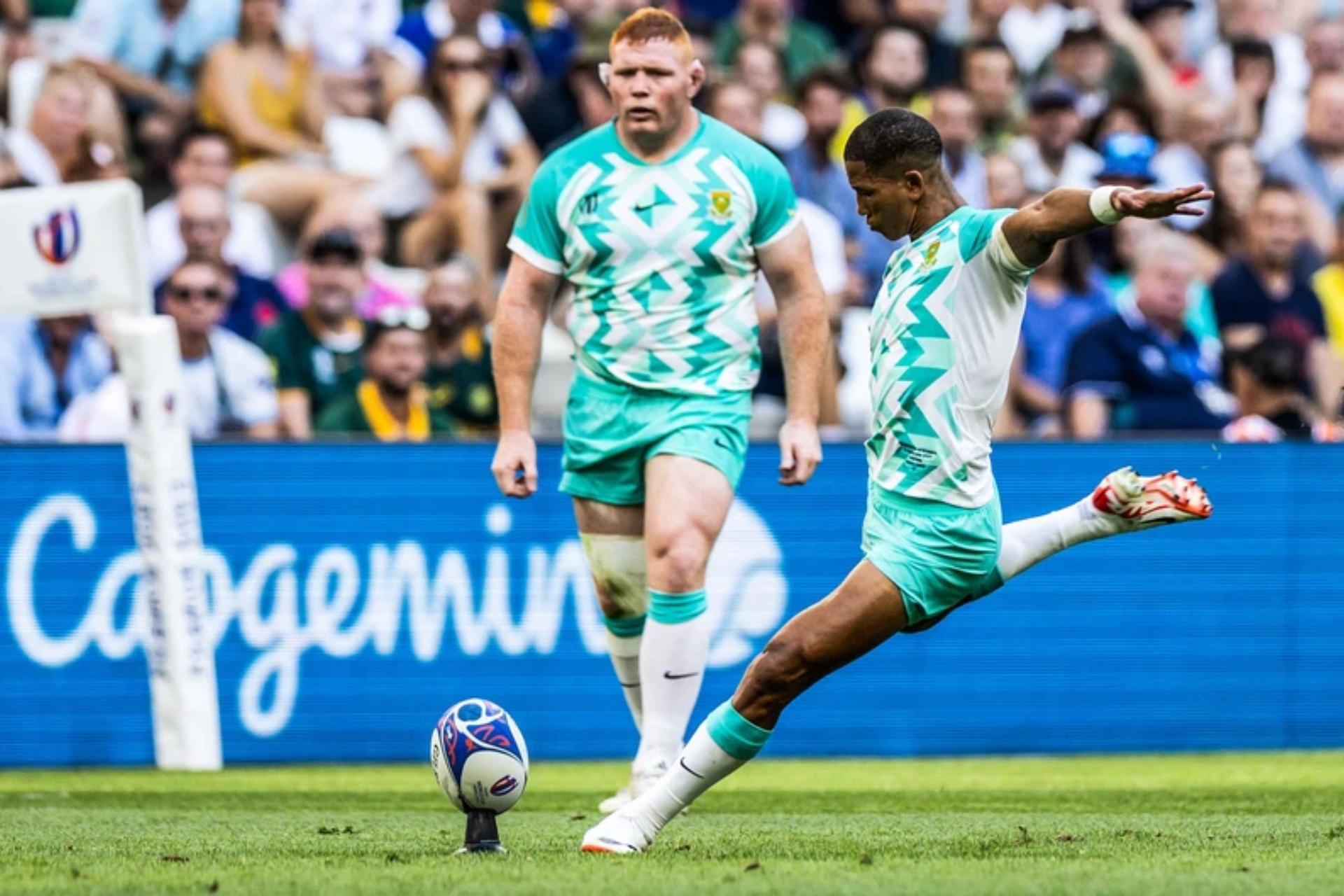
Springboks: Should Manie Libbok Kick? [Watch]
With Manie Libbok’s exceptional playmaking skills on display, should the Springbok flyhalf also handle the kicking duties?

Manie Libbok has been lighting up the rugby world with his exceptional playmaking abilities, as evident in his Man of the Match performance against Scotland in the Rugby World Cup opener. His electric form with the ball in hand raises the question: should the talented fly half also take on the responsibility of kicking for poles for the Springboks?
ALSO READ: Makazole Mapimpi set for milestone Springbok start
LIBBOK’S URC STATS
During the URC, Libbok stood out as the best fly half in the competition, leading the stats in various aspects. He emerged as the:
- Leading points scorer (217)
- Leader in metres gained (978)
- Leading Penalties scored (26)
- Leading Conversions (53)
- Boasting a kicking success rate of 75%
The electrifying Mannie Libbok has lightning-quick feet and a powerful step ⚡️⚡️
— vodacomrugby (@VodacomRugga) September 4, 2023
Drop a ⚡️ emoji and let's cheer Mannie on 🇿🇦
@Vodacom #URC pic.twitter.com/dsGQOaO0Oe
These numbers tell us that, while his kicking isn’t quite on par with the likes of Ford, Sexton, and Ramos, it’s not exactly terrible either. What’s more, when Libbok takes the reins as the number 10, his teams tend to light up the scoreboard with tries – and we’ve seen that happen during his time with the Boks too.
ALSO READ | Three forwards who could be Rugby World Cup game-changers for Springboks
WHY SHOULD FLY HALVES KICK?
Looking back in rugby history, fly halves have usually had a job description that includes being the team’s general, managing the game, and kicking for points. That’s not always the case. Sometimes, when you take the kicking duties away from the 10, it lets their natural game flourish.
Just a reminder that Manie Libbok did this.#RWC2023 | #RSAvSCO pic.twitter.com/hObqeqnXKJ
— Rugby World Cup (@rugbyworldcup) September 12, 2023
Currently, three of the top ten rugby teams don’t have their flyhalf as the primary place kicker:
FRANCE:
Before his injury, Romain Ntamack was the first-choice fly half for Les Bleus and since Matthieu Jalibert has taken over both were not given the kicking responsibility, fullback Thomas Ramos takes on the kicking duties for the French team.
AUSTRALIA:
During Australia’s winless pre-world cup campaign, the young flyhalf Carter Gordon had trouble with kicking for poles. In their victory against Georgia, Ben Donaldson, selected at 15, took up the kicking tee successfully.
ARGENTINA:
Santiago Carreras plays fly half for Los Pumas, but the sharpshooter outside back Emiliano Boffelli handles kicking duties for the Argentinian rugby team.
HISTORICAL SUCCESS:
Historically, teams have found success by employing this strategy. Notable examples include the 1999 Rugby World Cup final, where Stephen Larkham played fly half for Australia, but Matt Burke handled the kicking. Similarly, in the 2007 World Cup final, Butch James started as the flyhalf for South Africa, with Percy Montgomery and Frans Steyn taking on the kicking duties.
One of greatest passers in the game, but this drop goal will live long in the memory for @wallabies supporters!
— Rugby World Cup (@rugbyworldcup) May 29, 2021
Happy Birthday to RWC '99 winner, Stephen Larkham! pic.twitter.com/qledhpcZAP
Libbok’s value to the team goes way beyond his ability to nail kicks; he brings a constant threat that keeps the Boks in prime try-scoring positions. With players like de Klerk, Kolbe, and Willemse capable of handling kicking duties, perhaps entrusting the tee to one of them might be the wisest move.
Siya Kolisi on Manie Libbok’s kicking.
— Darren (@SaffasRugby) September 11, 2023
Must be so incredible to play for a captain like him. #RWC2023 pic.twitter.com/kQ9QtrrAWR
Alternatively, if Coach Nienaber remains firmly in Libbok’s corner for his kicks, he should back him 100% and not swap out halfway through a game. What do you think? Should Libbok continue kicking for poles, or should the responsibility shift to another player? Share your thoughts in the comments below.
